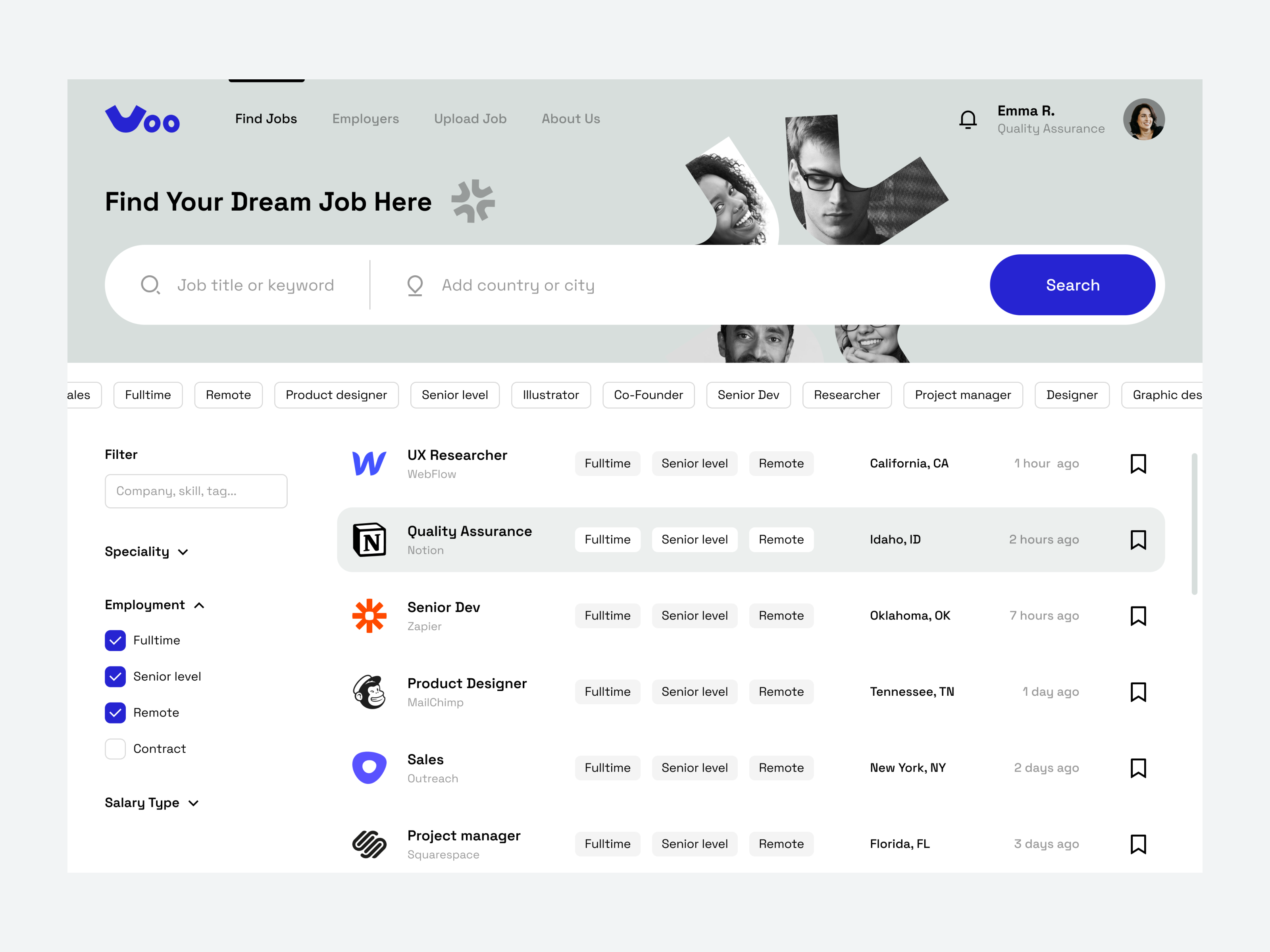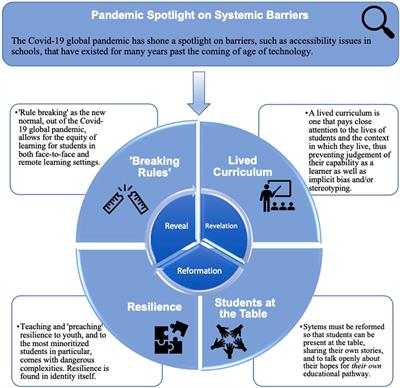Table of Contents
In the digital age, information is readily available at our fingertips, and this includes insights into potential employers. Job seekers no longer rely solely on job descriptions and company websites to gauge a prospective employer’s reputation. Instead, they turn to job-search platforms, where reviews and ratings provide valuable insights into the work culture, employee experiences, and overall satisfaction within a company. In this article, we’ll explore the growing influence of reviews and ratings on job-search platforms and what job seekers should consider when navigating this crucial aspect of their job search.
In the digital age, information is readily available at our fingertips, and this includes insights into potential employers. Job seekers no longer rely solely on job descriptions and company websites to gauge a prospective employer’s reputation. Instead, they turn to job-search platforms, where reviews and ratings provide valuable insights into the work culture, employee experiences, and overall satisfaction within a company. This paradigm shift in how job seekers approach their search for employment highlights the growing influence of reviews and ratings on job-search platforms and what job seekers should consider when navigating this crucial aspect of their job search.
Transparency and Authenticity: Reviews and ratings offer a level of transparency that was previously elusive in the job market. Job seekers can access unfiltered accounts of current and former employees, providing a more authentic glimpse into what it’s truly like to work at a particular company. This transparency empowers candidates to make informed decisions about potential employers.
Company Culture Assessment: Company culture is a critical factor in job satisfaction. Reviews often shed light on the workplace culture, including aspects like teamwork, leadership style, diversity and inclusion efforts, and work-life balance. Job seekers can use these insights to assess whether a company’s culture aligns with their values and expectations.
Employee Experiences: Reviews provide a platform for employees to share their experiences, both positive and negative. Reading about the day-to-day experiences of current and former employees can help job seekers gain a deeper understanding of the challenges and rewards associated with a specific role or company.
Red Flags and Positives: Reviews can serve as early warning signs or red flags about potential issues within a company. Conversely, they can highlight positive aspects such as career growth opportunities, training and development programs, and supportive management.
Diverse Perspectives: Reviews often come from a diverse range of employees, representing various roles, departments, and tenure within the company. This diversity of perspectives can provide a more comprehensive view of the organization.
Researching Before Interviews: Job seekers can use reviews to prepare for interviews. They can ask thoughtful questions based on the insights they’ve gathered, demonstrating their genuine interest in the company and its culture.
Rating Trends: Examining rating trends over time can reveal whether a company has improved or deteriorated in certain aspects, giving job seekers a sense of the company’s commitment to addressing issues.
Context Matters: While reviews are valuable, it’s important to consider context. A single negative review among many positive ones may not necessarily reflect the overall employee experience. Job seekers should look for patterns and common themes across multiple reviews.
Seeking Out Relevance: Not all reviews are equally relevant. Job seekers should focus on reviews from employees in roles similar to the one they are considering. This ensures that the insights are directly applicable to their potential position.
Balanced Perspective: It’s important to strike a balance when considering reviews. While they offer valuable insights, they should be one of several factors in the decision-making process, alongside interviews, research, and personal career goals.
In conclusion, the influence of reviews and ratings on job-search platforms is a testament to the shift towards greater transparency and accountability in the job market. Job seekers now have a powerful tool at their disposal to make more informed choices about their career paths. However, it’s crucial to approach reviews with discernment, recognizing that they provide a valuable but not exhaustive perspective on a potential employer. By integrating reviews into their job search strategy, candidates can navigate the employment landscape with greater confidence and find opportunities that align with their professional aspirations and values.
Additionally, you can find further information on this topic by visiting this page: THE IMPACT OF ARTIFICIAL INTELLIGENCE ON THE FUTURE OF …
The Rise of Employer Reviews
Job-search platforms have evolved into comprehensive resources for job seekers. Beyond job listings, these platforms now feature sections dedicated to employer reviews and ratings. These reviews are typically submitted by current or former employees and offer a candid look at what it’s like to work for a specific company.
Job-search platforms have undergone a remarkable transformation, evolving from simple job boards into comprehensive resources that cater to the multifaceted needs of job seekers. In addition to the traditional job listings, these platforms have introduced valuable sections dedicated to employer reviews and ratings, adding a new layer of transparency and insight into the job search process.
These employer reviews, often submitted by current or former employees, serve as an invaluable resource for job seekers. They provide an authentic and unfiltered glimpse into the work culture, practices, and overall experiences within a specific company. Here’s how these reviews are reshaping the job search landscape:
Informed Decision-Making: Employer reviews empower job seekers to make informed decisions about potential employers. By reading firsthand accounts of employees’ experiences, job seekers gain insights into the company’s work environment, management style, and employee satisfaction. This knowledge helps them assess whether a particular organization aligns with their values, career goals, and expectations.
Transparency and Accountability: The availability of employee reviews encourages greater transparency and accountability among employers. Knowing that their workplace practices are subject to scrutiny, companies are motivated to create positive work environments, address concerns, and improve employee satisfaction. This fosters a more balanced and mutually beneficial employer-employee relationship.
Diverse Perspectives: Employer reviews offer a diversity of perspectives. They allow job seekers to consider the experiences of individuals across different roles and departments within a company. This multifaceted view helps job seekers gain a holistic understanding of the organization’s dynamics and culture.
Continuous Improvement: Companies can use these reviews as valuable feedback to identify areas for improvement. By paying attention to constructive criticism and addressing employee concerns, organizations can work towards creating a more supportive and attractive workplace, which, in turn, can help them attract top talent.
Cultural Fit: Finding a cultural fit is increasingly important for both job seekers and employers. Employer reviews provide insights into a company’s culture, helping job seekers determine if they would thrive within that particular work environment. This emphasis on cultural alignment contributes to greater job satisfaction and longer-lasting employee-employer relationships.
Empowerment: Employee reviews empower individuals to have a voice in the job market. They allow employees to share their experiences, highlight positive aspects of their workplaces, and draw attention to areas that may need improvement. This collective sharing of information strengthens the job seeker community and facilitates more informed career decisions.
In conclusion, the inclusion of employer reviews and ratings on job-search platforms represents a significant shift in the job search paradigm. It empowers job seekers with valuable insights, encourages accountability among employers, and promotes transparency in the labor market. As these reviews continue to gain prominence, they play a pivotal role in shaping the future of work by fostering more informed, mutually beneficial, and satisfying employment relationships.
Looking for more insights? You’ll find them right here in our extended coverage: Online Reviews Are Biased. Here’s How to Fix Them

Why Reviews Matter
Reviews and ratings on job-search platforms have a significant impact on job seekers for several reasons:
nullFor a comprehensive look at this subject, we invite you to read more on this dedicated page: 18 Online Review Statistics Every Marketer Should Know

Navigating Reviews and Ratings
While reviews and ratings are valuable resources, job seekers should approach them with a critical mindset:
While reviews and ratings can provide valuable insights into potential employers and job opportunities, it’s essential for job seekers to approach them with a critical mindset. While these reviews can be incredibly helpful, they are not always entirely indicative of the overall experience or suitability of a particular job or company. Here’s why a critical approach is important:
Subjectivity: Reviews and ratings are inherently subjective. They reflect the experiences and opinions of individuals, and what one person finds positive, another may see as negative. It’s important to consider the context and personal biases of the reviewer.
Diversity of Experiences: Companies can have diverse teams and work environments, and job experiences can vary widely from one department to another. What might be a challenging or rewarding experience for one employee may not hold true for another.
Sample Size: The number of reviews can vary significantly from one company or job posting to another. A single negative review in a sea of positive ones may not be representative of the overall workplace culture or job opportunity.
Review Authenticity: Not all reviews are authentic or unbiased. Some may be influenced by personal agendas, competitors, or disgruntled former employees. It’s essential to consider the credibility and source of the reviews.
Changing Circumstances: Companies and job roles can change over time. A review from several years ago may not accurately reflect the current state of the organization or the nature of the job.
Individual Fit: What suits one job seeker may not be the best fit for another. Consider your own career goals, values, and preferences when evaluating reviews. What one person finds challenging, you may see as an opportunity for growth.
Use Reviews as a Starting Point: Rather than making a definitive judgment based solely on reviews, use them as a starting point for your research. Look for recurring themes or patterns in the feedback. If multiple reviews mention similar issues or positives, it’s worth investigating further.
Seek Clarification: If you come across conflicting reviews or ambiguous feedback, consider reaching out to current or former employees through professional networks to gather more information. They may provide additional insights to help you make an informed decision.
Balance with Other Factors: Reviews should be one of several factors you consider when evaluating job opportunities. Take into account the company’s reputation, the job description, the interview process, and any discussions you have with current employees or hiring managers.
Personal Interview: Use the interview process as an opportunity to ask questions and seek clarification on any concerns or areas of interest raised in the reviews. This direct interaction can provide a more nuanced understanding of the role and company culture.
In conclusion, while reviews and ratings can be valuable tools in your job search, it’s crucial to approach them critically and in conjunction with other sources of information. They can offer valuable insights, but a holistic assessment that considers your own preferences, values, and career goals is essential for making well-informed decisions about job opportunities.
Looking for more insights? You’ll find them right here in our extended coverage: Review of Refugee Mental Health Interventions Following …

Engage in Your Research
Job seekers should proactively use reviews and ratings as part of their research process:
Job seekers should proactively use reviews and ratings as part of their research process for several compelling reasons.
Firstly, these reviews offer a valuable glimpse into the real-world experiences of individuals who have worked for or with a particular employer. Reading about others’ experiences can help job seekers gain insights into a company’s culture, work-life balance, management style, and overall employee satisfaction. This information is often not readily available in job descriptions or official company materials.
Furthermore, reviews and ratings provide a platform for transparency in the job market. Job seekers can assess whether a company lives up to its promises and whether it aligns with their values and career goals. This transparency empowers individuals to make informed decisions about potential employers and ensures that they are entering into work arrangements that are compatible with their expectations.
Additionally, reviews can be a source of validation for job seekers. Positive reviews can boost confidence in pursuing opportunities with a particular employer, while negative reviews can serve as red flags that prompt further investigation or potentially steer job seekers away from organizations with problematic practices.
Job seekers can also use reviews and ratings to identify trends within industries or specific job roles. By analyzing common themes or recurring issues in reviews, they can gain a deeper understanding of what to expect in certain positions or sectors. This knowledge can guide their career choices and help them prepare for potential challenges.
In summary, the proactive use of reviews and ratings is a valuable strategy for job seekers. It offers insights, transparency, validation, and the opportunity to identify trends, all of which contribute to making informed decisions and finding the right career opportunities. Embracing these user-generated resources as part of the research process can greatly enhance the job search experience.
For a comprehensive look at this subject, we invite you to read more on this dedicated page: Recruiting Internally and Externally

Be Mindful of Online Etiquette
If you choose to leave a review about a previous employer, be constructive and fair. Avoid making overly emotional or exaggerated claims, and focus on providing helpful information to future job seekers.
Leaving a review about a previous employer can be a valuable contribution to the job-seeking community, but it comes with a responsibility to maintain professionalism and fairness. Here are some key considerations to keep in mind when sharing your experiences:
Constructive Critique: When writing a review, aim to provide constructive criticism rather than just venting frustration. While it’s essential to be honest about your experiences, focus on highlighting specific areas for improvement. This helps both potential job seekers and the employer in question understand how the workplace can be enhanced.
Avoid Exaggeration: It’s natural to feel passionate about your work experiences, especially if they were
For additional details, consider exploring the related content available here What is an ATS? 8 Things You Need to Know About Applicant …

In conclusion, reviews and ratings on job-search platforms have become indispensable tools for job seekers in evaluating potential employers. They offer transparency, insights into company culture, and valuable feedback on the employee experience. However, it’s essential for job seekers to approach these reviews with a critical mindset, consider multiple sources, and use the information to make informed decisions about their career paths. By leveraging reviews and ratings effectively, job seekers can increase their chances of finding the right job in an environment that aligns with their professional goals and values.
nullIf you’d like to dive deeper into this subject, there’s more to discover on this page: Your Approach to Hiring Is All Wrong
More links
If you’d like to dive deeper into this subject, there’s more to discover on this page: Indeed Employer Frequently Asked Questions
